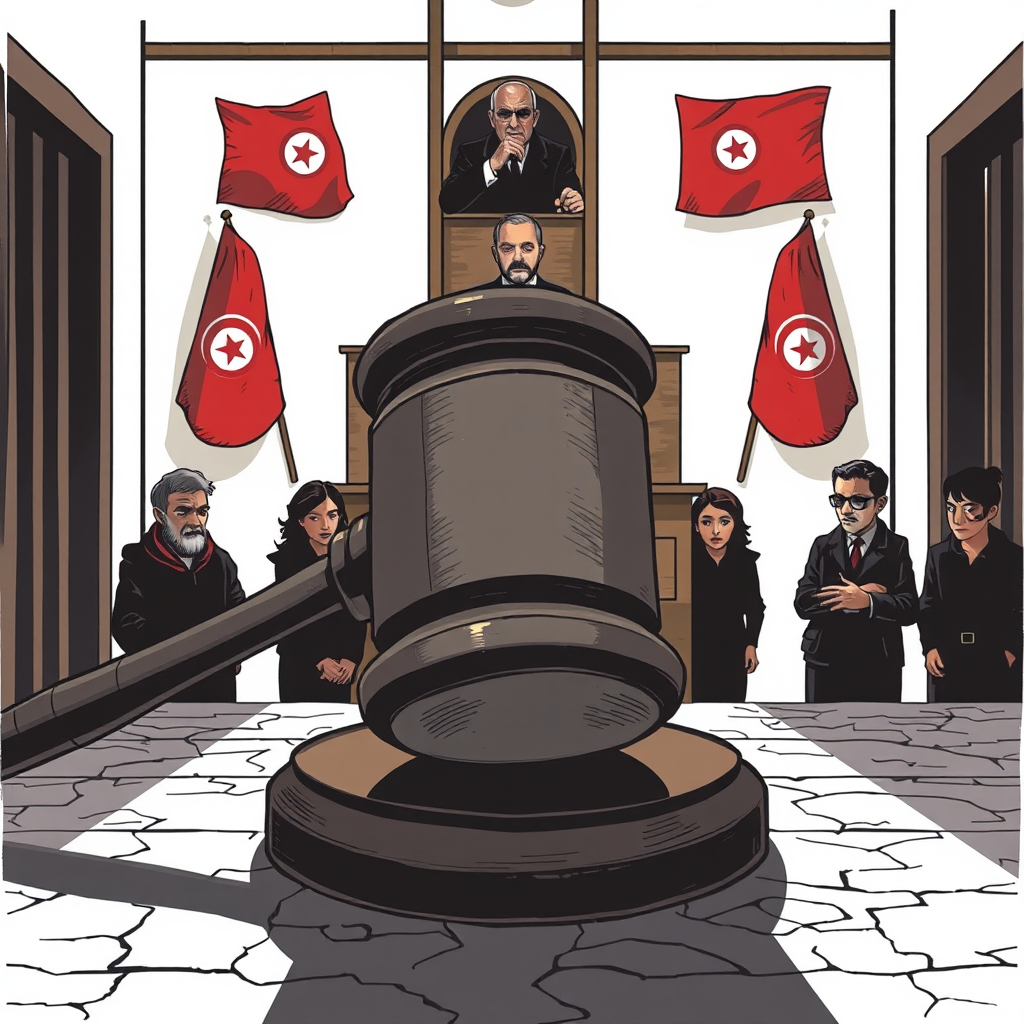Tunisia: Opposition Leaders Jailed in Mass Trial

Tunisian opposition figures and prominent critics of President Kais Saied have received lengthy jail sentences – up to 66 years – following a mass trial widely condemned by rights groups as a politically motivated sham. A Tunisian court delivered the verdicts against around 40 defendants accused of “conspiracy against state security” and belonging to a terrorist group, charges critics dismiss as baseless.
The sentences, ranging from 13 to 66 years, represent a significant escalation in the government’s crackdown on dissent since Saied’s power grab in July 2021. While official confirmation is pending, lawyers report minimum sentences of four years. Among those sentenced are well-known opposition leaders, lawyers, businesspeople, and activists, some of whom have already been detained for two years, are in exile, or remained at large prior to the verdict.
Human Rights Watch denounced the proceedings, stating the court failed to provide even a semblance of a fair trial and that the charges appeared unfounded, lacking credible evidence. French intellectual Bernard Henri-Levy and feminist activist Bochra Belhaj Hmida, both tried in absentia, received 33-year sentences. Leaders of the opposition National Salvation Front coalition, including Issam Chebbi and Jawhar Ben Mbarek, were sentenced to 18 years, alongside lawyer Ridha Belhaj and activist Chaima Issa. Activist Khayam Turki received a 48-year term, while businessman Kamel Eltaief received the harshest penalty – 66 years.
Two former leaders of the Islamist Ennahdha party, Abdelhamid Jelassi and Noureddine Bhiri, received 13 and 43 years respectively. Kamel Jendoubi, a rights advocate tried in absentia, described the proceedings as a “judicial assassination,” alleging the courts were acting on political orders.
The trial has been marred by accusations of due process violations. Defence lawyers reported the judge concluded deliberations without hearing from the prosecution or defence, and that defendants were not adequately heard. Media and foreign diplomats were barred from the proceedings. Several defendants had initiated a hunger strike to protest the trial.
This outcome is deeply concerning. The severity of the sentences and the reported lack of due process strongly suggest these convictions are politically motivated, designed to silence dissent and consolidate President Saied’s power. While the government may claim these actions are necessary for national security, the targeting of opposition figures, journalists, and activists undermines the very democratic principles Tunisia sought to establish following the 2011 Arab Spring. The international community must urgently address this erosion of freedoms and demand the immediate release of those unjustly imprisoned. The regime appears to be weaponizing the judicial system, and this mass trial serves as a chilling example of the rollback of civil liberties in Tunisia.